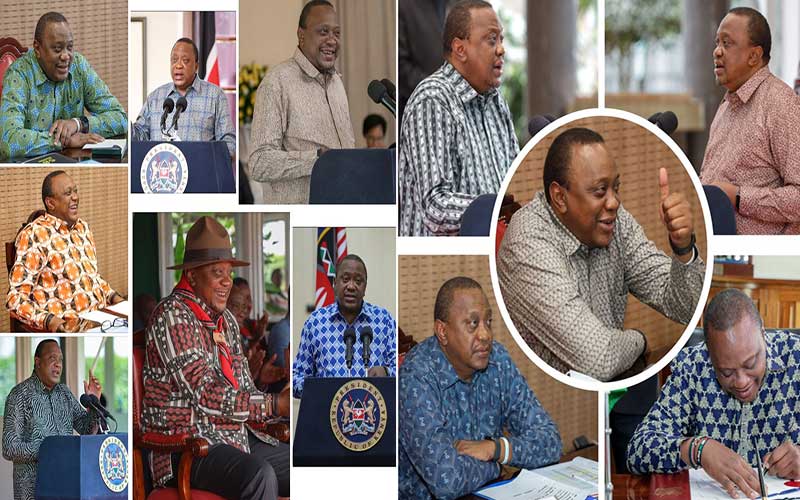×
The Standard e-Paper
Stay Informed, Even Offline

President Uhuru Kenyatta in his various kitenge shirts. [File, Standard]
President Uhuru Kenyatta has long been known to wear colourful kitenge shirts in public, so much that it is now not odd to stir national conversation.







